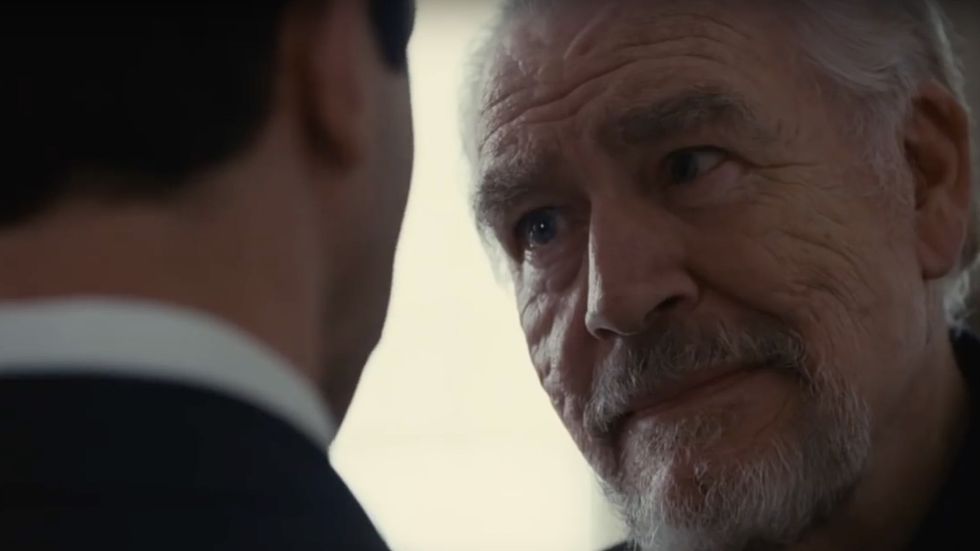Anyone with an interest in politics will recommend four running shows to anyone who will listen: "Madam Secretary," "Scandal," "House of Cards" and "Veep."
The former two air on standard cable channels, CBS and ABC, respectively, so are limited by stricter FCC rules. The other two are often rated more highly as a result. "House of Cards," which is produced by Netflix, is a dirty drama about a Representative who undermines, tricks and even murders anyone in his path to the presidency. HBO's "Veep" is an eff-your-feelings comedy that follows a vice president as she navigates the messy world of Washington.
Unfortunately, recent events have forced both shows to shut up shop after this year.
Kevin Spacey, the star of "House of Cards," was accused early this year of molesting as many as 15 men during his acting career. This season, his character's wife, Claire Underwood, is taking over as president. The Veep, played by Julia Louis-Dreyfus, has been battling breast cancer since September; the final season of her show was delayed as a result.
This is the context in which the world got HBO's "Succession."
Before the show began, many viewers may have been indecisive. The premise itself is dull: a rich family that runs a large media conglomerate has problems. Is this worth the time commitment required of a television show? But by the first episode, all doubt is removed.
The characters are funny, but they are also deeply unlikable. The patriarch, Logan Roy, runs his company like a kingdom. His middle son, Kendall, wants very badly to take over as CEO and throws a fit when his father announces he will not step down, as expected. One of Kendall's brothers, Roman, looks and sounds like he was created in a lab to imitate Martin Shkreli, the "pharma bro" made famous for hiking the price of a life-saving HIV medication from $13.50 to $750 per tablet.
Later, it is revealed that the other two siblings, Siobhan and Connor, are equally appalling. Siobhan, or Shiv for short, is cheating on her fiancé, Tom, while working for a presidential candidate is determined to break up her father's empire. Connor is living in the desert somewhere and dating a former call girl.
Watching these awful people contributes to the humor of the show, but it also has another impact: because the viewer hates every character, he or she is compelled to view their actions neutrally.
As Kendall attempts repeatedly, occasionally while on cocaine, to take over his father's company, the viewer isn't quite sure whom to support because Logan isn't particularly good at running the firm. While Shiv is cheating on Tom, Tom is orchestrating a cover-up of vast sexual assault and harassment within the company, which makes Shiv's affair seem like a karmic retribution.
The show is especially good at combining effective humor with a cliffhanger plot.
The comedy aspect serves as a way to relieve the tension inherent to the show but also showcases its Shakespearean influence. "Succession" draws heavily from "King Lear," in which an aging king attempts to bestow his holdings to his favorite daughter until she refuses to tell him how much she loves him.
The play is a tragedy, but one laced with the grim humor of senility and pettiness. "Succession" also finds inspiration from shows like "The Office" and "Veep," in which there aren't really any jokes and the comedy is largely unstructured. Such humor runs the risk of falling flat, but it also makes for a smoother storyline and a more realistic, approachable setting.
"Succession" is also successful at balancing rich-world satire with real-world humanity.
Critics have often pointed out the similarity between Logan Roy's company and private life with Rupert Murdoch's, the head of 21st Century Fox Inc. The writers throw in a couple of rich-people problems: cocaine addiction, affairs, takeover bids and spoiling one's kids. Yet these problems are also reflective of issues that are not unique to the uber-rich. Fundamentally, all of the characters seem more lonely than power-hungry. In fact, all the actions in the show, Kendall's cocaine addiction, Shiv's affair, Logan's clinginess to power, seem to be propelled by loneliness.
Here is where shows like "House of Cards" make their mark.
The horrible things going on in the upper echelons of society may seem far-off, but in the end, politicians and businesspeople are humans and their reactions to their unique environments are no different from the way the rest of ours would be if we were in the same situation.
The best political shows ever produced are going away, and it is unlikely that any will take their place soon. Those who enjoyed "House of Cards" and" Veep" should take consolation in the rise of a production that combines the best aspects of each of them. Season 1 of "Succession" is already in the books; the remainder of the show should be even more engaging.



















